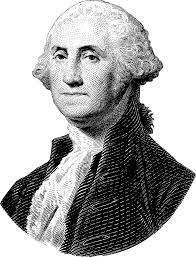George Washington
Introduction:
George Washington is widely regarded as the father of the United States of America. He was the first President of the United States, serving from 1789 to 1797. However, Washington’s contributions to the founding of the United States extend far beyond his time in office. He was a military hero, a skilled politician, and a visionary leader who played a key role in shaping the nation’s early years. This blog will provide a comprehensive biography of George Washington, discussing his early life, education, social background, achievements, tragedies, and more.
Early Life and Family Background:
George Washington was born on February 22, 1732, in Westmoreland County, Virginia. He was the eldest son of Augustine Washington and his second wife, Mary Ball Washington. His father was a wealthy planter and a local official, while his mother came from a modest background. George had five siblings, two half-brothers, and three younger siblings.
Washington’s childhood was spent on his family’s plantation, Ferry Farm, where he received his early education from private tutors. His father died when he was 11, leaving him under the care of his half-brother, Lawrence. Lawrence introduced him to the Fairfax family, who were among the most prominent landowners in Virginia, and who would play a significant role in Washington’s life.
Social Background:
Washington was born into a society that was deeply divided by race and class. Slavery was an integral part of the colonial economy, and many wealthy Virginians, including Washington’s family, owned slaves. Washington’s views on slavery evolved over time, but he never fully embraced the abolitionist cause.
Washington’s social status was enhanced by his military and political career, which allowed him to move in elite circles. He was known for his impeccable manners, his physical presence, and his ability to inspire loyalty in his subordinates.
Education:
Washington’s education was primarily home-based, with private tutors providing him with instruction in reading, writing, and arithmetic. However, his lack of formal education did not hinder his later success, as he was a quick learner and had a natural talent for leadership.
Achievements:
Military Career:
Washington’s military career began in 1752 when he was appointed a major in the Virginia militia. He fought in the French and Indian War, serving as an aide to British General Edward Braddock. Despite the defeat of Braddock’s forces, Washington’s bravery and leadership skills were recognized, and he was appointed commander of Virginia’s militia.
In 1775, the Second Continental Congress appointed Washington as commander-in-chief of the Continental Army, which was fighting for independence from Britain. He led the army through numerous battles, including the Siege of Boston and the Battle of Trenton. Despite many setbacks, Washington’s determination and strategic genius helped turn the tide of the war in favor of the American forces.
Political Career:
After the Revolutionary War, Washington retired to his estate in Mount Vernon but was soon called back into public service. In 1787, he was appointed as the presiding officer of the Constitutional Convention, which drafted the United States Constitution. He was a strong advocate for a strong central government and helped broker compromises between the various factions.
In 1789, Washington was elected as the first President of the United States, serving two terms until 1797. During his presidency, he established many of the traditions and precedents that still guide the presidency today. He also helped establish the federal government and set the nation on a course of economic growth and expansion.
Tragedies:
Washington’s life was not without tragedy. He suffered from a number of illnesses throughout his life, including malaria, smallpox, and tuberculosis. He also lost two siblings and his beloved stepdaughter, Patsy, to illness.
Perhaps the greatest tragedy of

